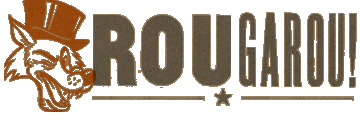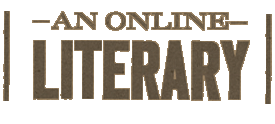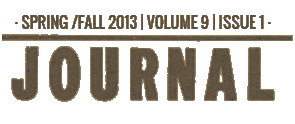· SPRING /FALL 2013 | VOLUME 9 | ISSUE 1 ·
Rougarou, an online literary journal.
The End of It
Kelsie Hahn
Our vacation ended when my husband saw the bashed pet crate on the side of the highway. It was a plastic travel case with large air holes, sized for a small dog, and the thing was dented badly, one corner splintered clean away. The hole was big enough that whatever had been in there could have gotten out.
We had no idea what animal had been inside, how long the crate had been there, or even if anything had been inside the crate. I pointed these problems out to Ollie to no effect. Perhaps they added urgency to his insistence that we pull over, hike the now half-mile or so back to the crate, and search for whatever had been inside.
I know he imagined a little dog with a hurt paw, crying in the ditch, with tags indicating it had all its shots but, poor baby, no home phone number or address, and then of course we would have to take it home to save it from being put down at the shelter.
Something similar happened two years ago, only the dog was our neighbor’s, though Ollie refused to believe it until the neighbors showed up and called it by name and the dog went running and slobbering all over them. They thanked us for finding and caring for the dog, sure enough, but they looked at us oddly when they said it. We’d dog-sat the thing three summers running, after all, and we knew the dog was theirs. They never actually accused us of stealing the animal, but they did not ask us to pet sit again.
Ollie was desperate to rescue a dog — not out of the pound or the shelter, but from ever going there in the first place. The dog had to be rescued directly from the streets and into our home for a number of reasons: the nobility, the story, and the avoidance of adoption fees. He must have been drooling over that crate — our friends would swoon, the whole image of the shattered crate in the road, the two of us wading through high grass to find the victim, Ollie tenderly lifting the little dog in his arms and rushing to the car, the vet, the pet store, the house, where he would arrange the dog’s new belongings before hitting the baby name books, a gift from his mother. Not a subtle one. I just wanted to get to Galveston and its crummy little beach and our ramshackle rental house, still another four hours away assuming we didn’t hit bad traffic in Houston.
We stumbled through the grass to the crate, stirring up giant mayfly-looking things and already sweating through our shirts. Cars groaned by, sucking air, rushing to get out of the nothingness of pastures and patchy woods, yet here we were, searching for an animal that probably never existed in the first place.
Ollie examined the crate and the surrounding grass, looking for blood or tracks, though why he thought he could track an animal so small I have no idea. He doesn’t hunt. He doesn’t even like violent movies or books, the kind of places where one might learn something about tracking. But he examined the ground and imagined that one direction through the grass looked more beaten down than another. We slogged off to a stand of trees.
The shade wasn’t any cooler, and I squatted under a big cedar while Ollie rooted around, whistling or making little clicking noises with his tongue, curving his shoulders to appear nonthreatening and inviting. I stopped paying attention, daydreamed about a cool shower at our beachfront house and a walk to a little seafood restaurant, but Ollie hissed at me.
“Cam. Ssst. Cam. He’s over here.” Then a change in tone, high and sing-song. “It’s all right, come on out. Good boy. You’re okay. I’m not gonna hurt you. I’m gonna take care of you, it’s okay.” And on.
I crept behind him but couldn’t see anything in the shrubs he was talking to. “What if it’s a good girl?” I asked peevishly. Then, a rustle, a dappled gray shape advancing, low to the ground and hesitant. Good lord, he actually found it.
Ollie murmured and extended his hand to the shadows, where it met the spitting, hissing face of a huge, thick cat that shredded his arm with claws before sinking its teeth into the fleshy skin between thumb and forefinger. Then my husband, my husband who cries during Old Yeller, my husband who always says yes to donation drives for the ASPCA, my husband who catches and releases the centipedes he finds crawling along our floor, this same husband jerked his arm free, reared back, and punted the cat into a tree. Its body snapped backwards against the trunk and fell. Ollie didn’t wait to see if it moved or cried or anything, just shoved me back in the direction of the car with his non-bloodied arm.
I didn’t argue with his flat refusal to go back for the cat’s probable corpse or his decision to drive home to our family doctor and the series of rabies shots that awaited him there, particularly without the corpse for testing. The drive was long and quiet. Ollie’s hand and arm were cluttered with band aids and cotton strips from the emergency kit in the trunk.
As we took the exit toward our house, I asked him if he would have done the same thing if it was a dog he found out there.
“A dog wouldn’t have made me do that,” he said, and that was the end of it.







